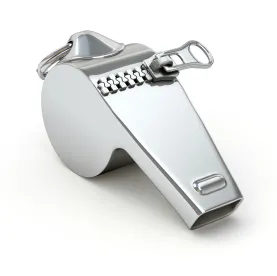In a unanimous decision, the New Jersey Supreme Court has refused to raise the bar for employees whose job entails ensuring legal compliance (“watchdog” employees) to bring whistleblower claims under the New Jersey Conscientious Employee Protection Act (CEPA). Lippman v. Ethicon, Inc., No. A-65/66-13 (July 15, 2015).
Employees who express disagreement with their employer’s current or proposed business activity in the regular course of their day-to-day job duties, even if the employer ultimately adopts the course of action supported by the complaining employee, may find it easier to state a cause of action following this decision.
Background
This matter arose out of an appeal of a summary judgment determination, so the Supreme Court interpreted the record in the light most favorable to the plaintiff, the non-moving party, and resolved all disputed facts in the plaintiff’s favor. Neither the Supreme Court nor any other court made any findings of fact on the merits.
The plaintiff, Joel Lippman, M.D., was employed by Ethicon as a vice president of medical affairs and chief medical officer. This was a “high-level policy decision making” position in which Lippman was responsible for ensuring the safety of Ethicon’s products. Lippman also sat on internal review boards, including a quality board that evaluated the health risks posed by Ethicon’s products. The quality board had final decision-making authority with regard to safety issues and product recalls.
Throughout his employment, and as part of his required job duties, Lippman objected to the sale and distribution of several medical products developed by Ethicon and opined that the products should not go to market, be recalled, or undergo further research before distribution and sale. Significantly, Ethicon ultimately followed many of Lippman’s recommendations, although Lippman contended there was “pushback” from the company.
In April 2006, Lippman was advocating the recall of a particular product he believed to be dangerous. Lippman claimed the company initially resisted recalling the product, but it ultimately agreed to the recall in late April or early May 2006. Shortly thereafter, on May 15, 2006, Ethicon terminated Lippman’s employment because he was engaged in an “inappropriate” relationship with a direct subordinate.
Lippman commenced an action under CEPA against Ethicon and its parent company, claiming the alleged inappropriate relationship was a pretext for retaliatory termination, which truly was attributable to Lippman’s “whistleblowing” — his objection to the sale and distribution of products he considered dangerous.
Procedural History
The trial court granted the defendants’ motion for summary judgment in accordance with the Appellate Division’s published decision in Massarano v. N.J. Transit, 400 N.J. Super. 474 (App. Div. 2008). The court in Massarano held that an employee who raises illegal or unethical conduct as part of his or her job duties cannot claim whistleblower protection under CEPA.
On appeal of Lippman, the Appellate Division reversed the trial court in a published decision, finding that the Massarano dicta relied upon by the trial court was not supported by the statutory language of CEPA. The court also held that whether an employee is protected by CEPA does not turn on his or her job title or duties. See Lippman v. Ethicon, Inc., 432 N.J. Super. 378, 381 (App. Div. 2013). In reaching this conclusion, the Appellate Division specifically recognized that watchdog employees like Lippman “are the most vulnerable to retaliation because they are uniquely positioned to know where the problem areas are and to speak out when corporate profits are put ahead of consumer safety.”
However, in an apparent attempt to reconcile CEPA’s statutory language and the issues facing employers from such employees, who are employed specifically to ensure corporate compliance with the law, the Appellate Division set a heightened standard for recovery under CEPA. It required a watchdog employee to show that he or she refused to participate in objectionable conduct or “pursued and exhausted all internal means of securing compliance” with the law.
Supreme Court Decision
The New Jersey Supreme Court affirmed that CEPA applies with equal force to watchdog employees as it does to other employees. The Court’s decision was based on CEPA’s language, which provides a broad definition of “employee” and no express exemptions for employees whose regular job duties include ensuring compliance with the law.
The Court further relied on the well-settled principle that CEPA’s purpose was to “protect and encourage employees to report illegal or unethical workplace activities and to discourage … employers from engaging in such conduct.”
In so holding, the Court expressly rejected Massarano and further found the Appellate Division’s heightened standard for a watchdog employee to bring a claim under CEPA has no support in CEPA’s statutory text. Thus, employees with compliance-related duties are subject to the same standards for recovery under CEPA as employees without such duties. The Court remanded the matter to the trial court for further proceedings consistent with its decision.
Implications
Lippman could have far-reaching effect on New Jersey’s employers. With the elimination of Massarano’s constraint on whistleblower protection for watchdog employees, such an employee who simply voices objections to actual or proposed corporate decisions, and thereafter is terminated or counseled regarding performance, may raise a claim that the employer’s legitimate reasons for the employment decisions are a pretext for retaliation. Since CEPA does not require an employee to prove that a complained-of activity actually is illegal or unethical, even an incorrect objection made in good faith could be sufficient to confer whistleblower status. Moreover, an employee may pursue a whistleblower claim even if the employer ultimately follows the employee’s proposed course of action. Thus, it remains essential for employers to give careful consideration to the particular circumstances when making personnel decisions regarding watchdog employees, including the decision to provide counseling regarding performance issues. Employers should continue to maintain clear documentation of employment decisions, in the event of actual or threatened litigation.
It remains to be seen whether Lippman will have a chilling effect on employers’ compliance efforts. Indeed, the defendants in Lippman contended that permitting whistleblower claims by watchdog employees “creates a class of employees against whom an employer cannot take an adverse employment action without risking CEPA liability, and … incentivizes employers to no longer entrust employees with critical matters of legal compliance or public safety.” The Court did not address these troubling issues in its decision, leaving it to the state Legislature to consider adopting different standards for watchdog employees under CEPA.





 />i
/>i
